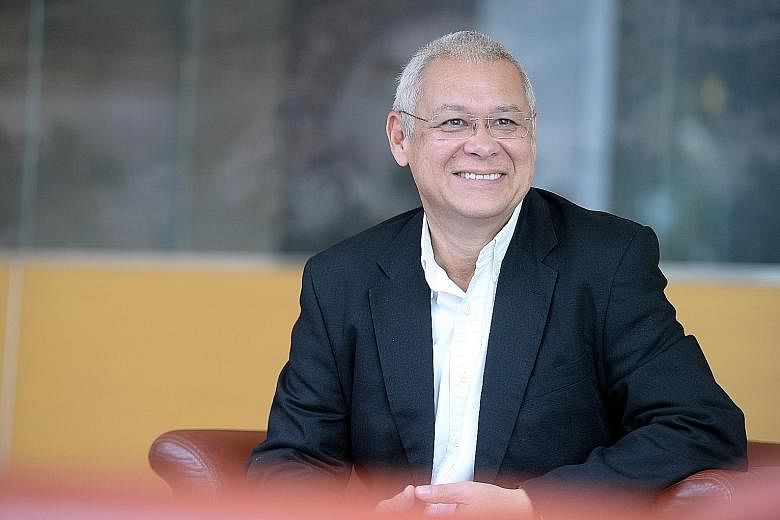I can remember being really excited about sampling authentic Peking duck during one of my stays in Beijing. The experience was underwhelming. The duck was all right but it wasn't one of the best that I've had. The same goes for my experience with Xiao Long Bao in Shanghai. Again it was adequate but nothing to write home about.
In both instances, I felt that Singapore's execution of the two famous Chinese dishes is better. Point is, you don't always need to go to China for good Chinese food. It is possible to enjoy authentic Chinese cuisine without even leaving Singapore. Similarly, you don't need to buy Chinese shares to get some exposure to Chinese growth. There are other ways that we can do it, if we really want to get a slice of the action in one of the fastest-growing economies in the world.
So some exposure to it might not be such a bad idea. Additionally, China has one of the oldest stock exchanges in the world. So it should know a thing or two about how capital markets work. The market for securities trading in China began in the late 1860s. But buying and selling came to an abrupt stop during World War II. It was halted again after the communist revolution. In fact, trading of Chinese shares didn't resume fully until 1990, after a four-decade long interruption. Today, the two mainland Chinese bourses, the Shanghai Stock Exchange and the tech-heavy Shenzhen Stock Exchange, combined, rank as the second-largest share market in the world.
So, the Chinese stock market is just too big to ignore. Morgan Stanley Capital International thinks so too. It has been deliberating whether China "A" shares should be included in its Emerging Market Index. After three attempts, it was fourth time lucky for the Middle Kingdom. As far as MSCI is concerned, China has now done enough to warrant inclusion. Some might argue that it hasn't done quite enough, yet. But for now, its inclusion is only a token gesture. The addition of 222 China "A" shares to the index is hardly going to set the world alight. But it could set tongues wagging.
Point is, China is already quite well represented in the MSCI Emerging Market Index through Chinese companies that are listed outside of China. These include Alibaba, which is listed on the New York Stock Exchange, as well as Hong Kong-listed counters, such as Tencent Holdings, which has a 4 per cent weighting, and China Mobile. Generally, companies listed outside of China are believed to be better regulated. They are less likely to be affected by snap interventions from Chinese regulators.
Those regulators can be heavy-handed. Remember when the Chinese press whipped up frenzy for Chinese shares only two years ago? It sent shares rising by around 80 per cent before plummeting 40 per cent at the start of last year. They slumped on fears that the Chinese economy could be slowing, the yuan could be devalued and corporate debt could be unsustainable. The authorities stepped in swiftly with their clumsy circuit breakers to stem the fall that was of their own making.
Some things have changed for the better. MSCI is hoping that its goodwill gesture to China could help accelerate market reforms. But under the new arrangement, China "A" shares would represent only 0.7 per cent of the MSCI Emerging Market Index. That is pathetic, given that the fund is worth US$1.6 trillion (S$2.2 trillion), while the Chinese equities market is worth around US$6.9 trillion. Yet if China can continue to reform, then more Chinese-listed companies could be included later.
China is still a risky market. Share trading is dominated by millions of retail investors, who see the stock market as a possible substitute for gambling. And as the 2016 crash in Chinese stocks showed, many investors trade on rumours and speculation rather than fundamentals. Additionally, corporate governance is still very much a work in progress. That is not a healthy state of affairs.
For many Singapore investors, there are other ways to get exposure to the Chinese economy. We need look no further than the Singapore Exchange. More than half of the Straits Times Index stocks have revenue exposure to China. They range from 1 per cent in the case of Ascendas Reit to 70 per cent for Hongkong Land, which has a 70 per cent exposure to Greater China.
As investors, when we buy shares in a business, we should not only look at the fundamentals of the company but also the fundamentals of the exchange it is listed on. China still has to prove that it can let capital markets function without interference. Right now, buying China shares can be a bit like entering a room where there is a door handle on the outside but none on the inside. That can be a scary prospect for even the most hardened investor.
•The writer is CEO of The Motley Fool Singapore.

